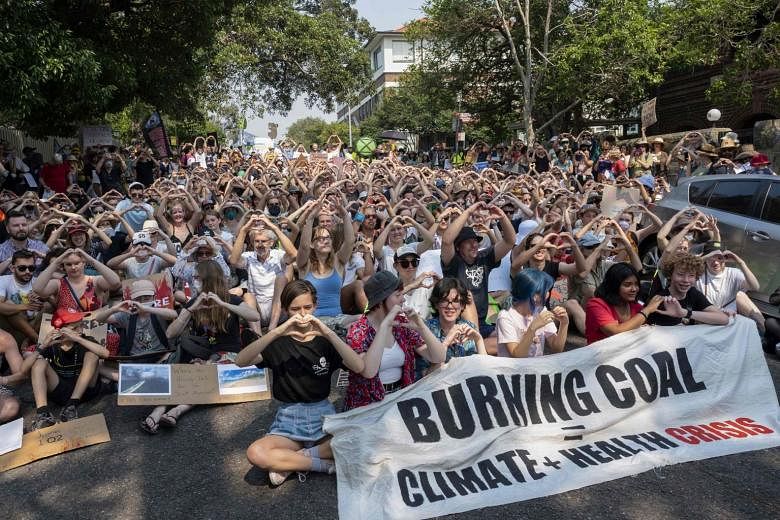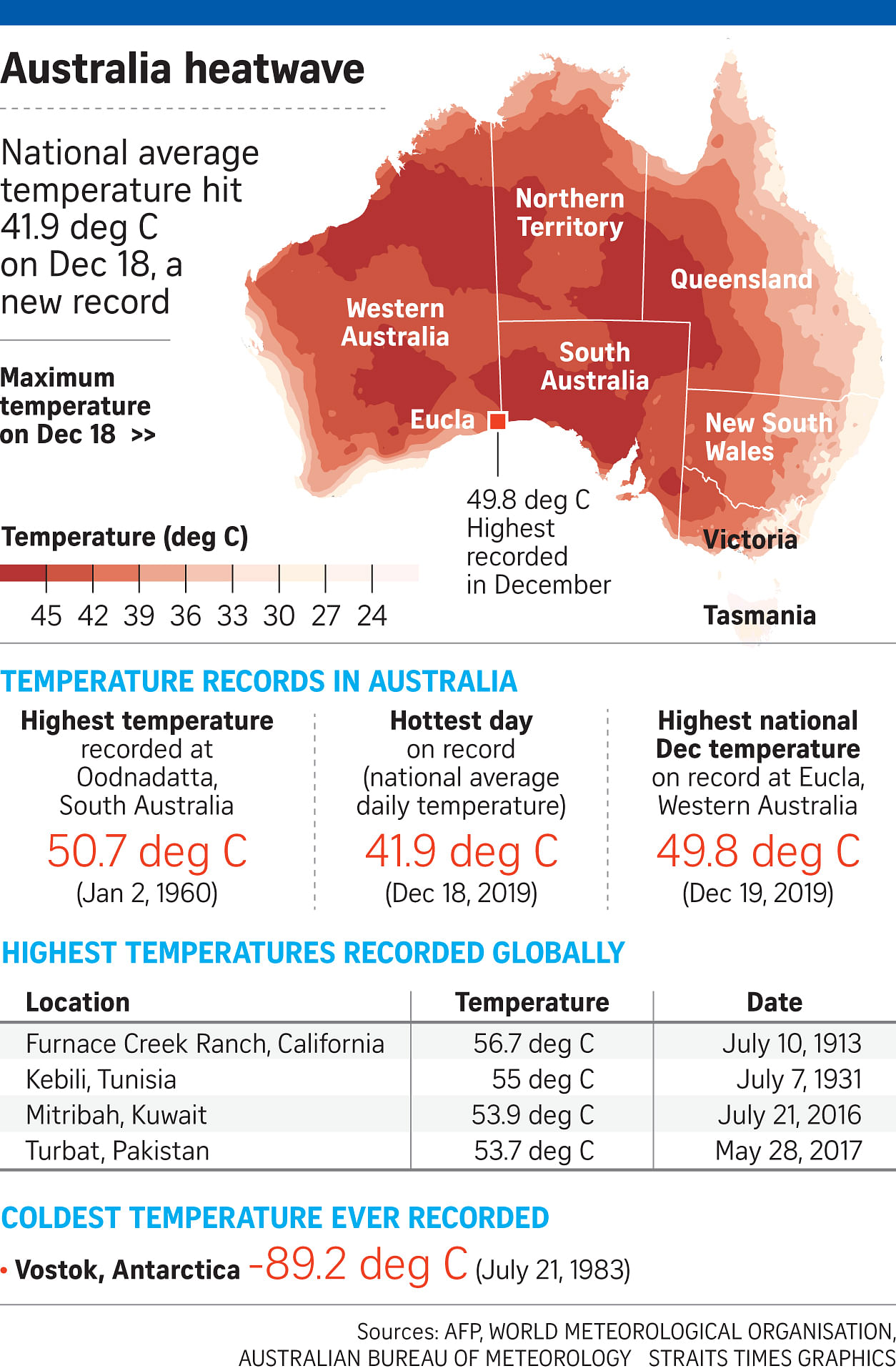PERTH • Australia's most populous state of New South Wales yesterday declared a seven-day state of emergency as oppressive conditions fanned around 100 wildfires.
Around 2,000 firefighters were battling the blazes, half of which remained uncontrolled, with the support of United States and Canadian backup teams and personnel from the Australian Defence Force.
The last state of emergency ran for seven days mid-last month amid "catastrophic" fire risk and was the first implemented in New South Wales since 2013.
Central Sydney reached a maximum of 39 deg C yesterday, while the outer suburbs scorched at 42 deg C.
A statewide total fire ban announced on Tuesday will remain in place until midnight tomorrow.
Around three million hectares of land has burned nationwide during a torrid past few months, with six people killed and more than 800 homes destroyed.
The annual Australian fire season, which peaks during the Southern Hemisphere summer, started early after an unusually warm and dry winter.
New South Wales Premier Gladys Berejiklian said the authorities were concerned about the unpredictable conditions.
"With extreme wind conditions, extreme hot temperatures, we have a good idea, a good sense, of where the most concerning areas are, but again, when you've got those turbulent conditions, embers and spot fires can occur very unpredictably," she told reporters.
Sydney's air pollution levels yesterday ranged from poor to hazardous. In the past month, hazardous smoke has often blanketed Australia's most populous city and made its iconic skyline barely visible.
Hospitals have recorded a 10 per cent increase in visits from patients with respiratory conditions during the past week. The Australian Medical Association has recommended that people keep hydrated, cool and out of the sun.
Wildfires are also burning in Queensland, South Australia and Western Australia.
In Buxton, about 100km south-west of Sydney, long-time resident Paul Collins said a nearby bush fire that had destroyed dozens of buildings was "much worse" than in past years.
"It's spread faster with the wind, and the bush and the ground is just so dry," Mr Collins told Agence France-Presse, blaming climate change and a long-running drought for the worsening fires. "It's just a horrendous situation, really."
At least 20 houses were destroyed in New South Wales yesterday, according to national broadcaster ABC.
Meanwhile, the roughly five million people of Sydney continued to choke on smoke from a "mega-blaze" ringing the city.
Leading doctors have warned that the smoke, which has shrouded Sydney for weeks, has created a "public health emergency".
Vulnerable people in New South Wales have been urged by the authorities to stay indoors amid worries the scorching heat, combined with the toxic smoke, could cause "severe illness, hospital admissions and even death".
Australia recorded its hottest day on Tuesday, but that record was smashed again on Wednesday - which saw an average maximum of 41.9 deg C nationwide.
Perth, the capital on the west coast, is experiencing its hottest December, with average temperatures for the month at 36 deg C and 7 deg C above the mean.
Adelaide, in the south-east, is currently experiencing a four-day heatwave culminating in a sizzling 45 deg C yesterday.
The unprecedented conditions have reignited debate on whether Australia's conservative government has taken enough action on climate change. Australia is the world's largest exporter of coal and liquefied natural gas.
Protesters yesterday camped outside Prime Minister Scott Morrison's Sydney residence demanding urgent action on climate change. Mr Morrison, who is currently on holiday, conceded last week that "climate change, along with many other factors," contributed to the wildfires.
ASSOCIATED PRESS, AGENCE FRANCE-PRESSE




